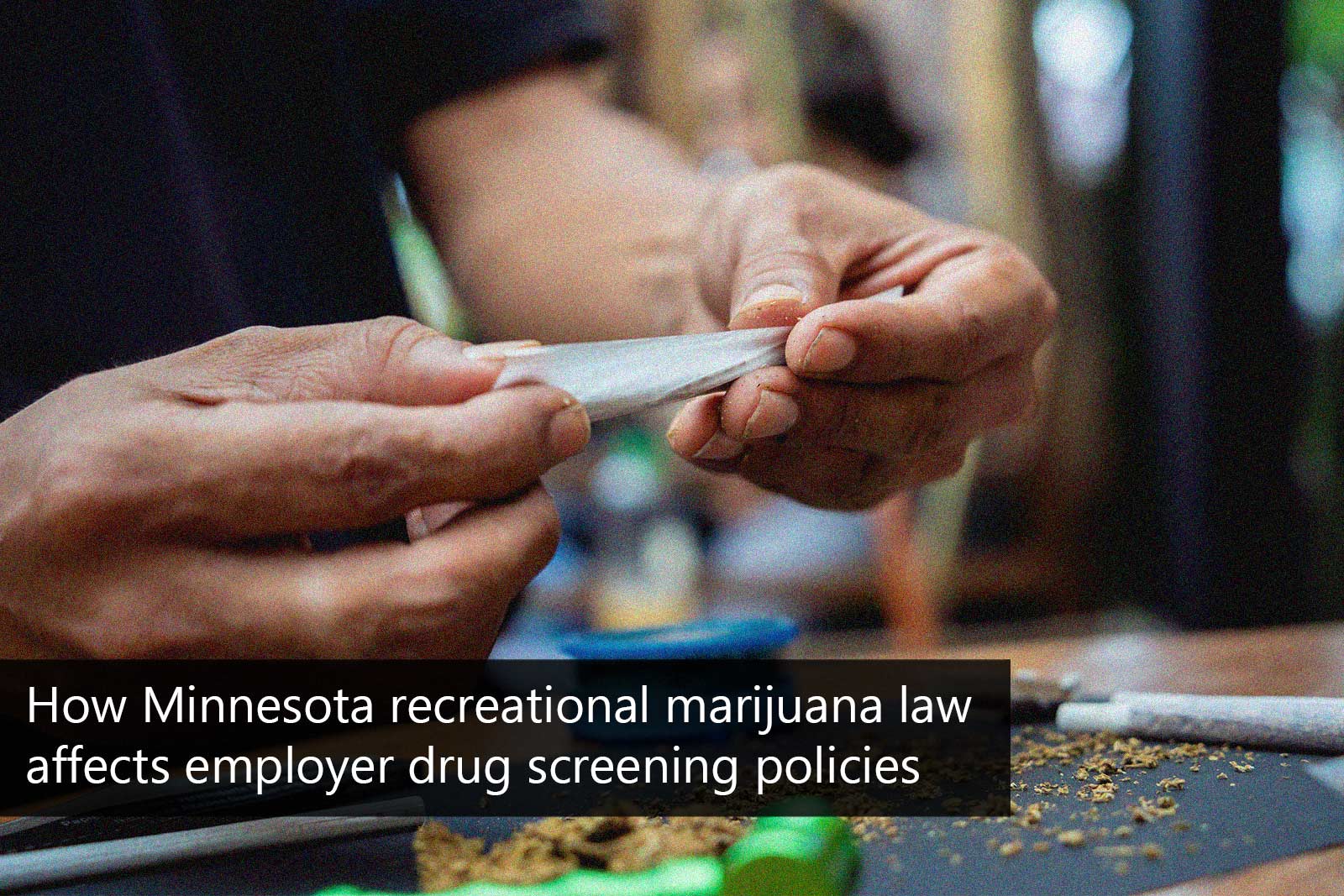Impact of Minnesota Marijuana Law on Employer Drug Screening Policies
June 22, 2022
On May 30, 2023, Minnesota Governor Tim Walz signed a bill into law that legalized recreational marijuana for adults 21 and older. The bill also decriminalizes marijuana possession and home cultivation beginning August 1, 2023, and allows for the automatic expungement of misdemeanor marijuana convictions and the review of felony marijuana offenses for possible expungement.
Minnesota became the 23rd state in the nation to legalize adult-use cannabis, joining a growing trend of states that have reformed their marijuana laws in recent years.
How will this affect your company?
The new law does not explicitly address workplace drug testing or impairment, leaving it up to employers to decide how to handle marijuana use by their workers. However, the law does state that it does not require employers to permit or accommodate the use, consumption, possession, transfer, display, transportation, sale or growing of cannabis in the workplace.
It also does not affect the ability of employers to establish and enforce policies restricting the use of cannabis by employees. This means that employers can still maintain a drug-free workplace policy and conduct drug testing as they see fit, as long as they do not discriminate against employees or applicants based on their lawful use of cannabis outside of work hours and off of work premises.
Employers can also continue to discipline or terminate employees who are impaired by cannabis at work or who violate workplace safety rules or performance standards due to cannabis use. However, employers could face some challenges and legal risks in enforcing their drug testing policies under the new law. For one thing, current drug tests cannot reliably measure impairment by cannabis, as they only detect the presence of THC metabolites in the body, which can linger for days or weeks after consumption.
This means that a positive test result does not necessarily indicate that an employee was impaired by cannabis at work or during work hours. Moreover, some employees may have a legal right to use medical cannabis under Minnesota's existing medical marijuana program, which was not affected by the new law.
Employers who test positive for cannabis may claim that they were using it for medical purposes and that their employer violated their privacy rights or discriminated against them based on their disability or health condition. To avoid these potential pitfalls, employers may want to review and update their drug testing policies and practices considering the new law.
Some possible steps you can take include:
- Clearly communicate company expectations and rules regarding cannabis use to your employees and applicants and provide them with a copy of your updated drug testing policy.
- Educate managers and supervisors on how to identify and document signs of impairment by cannabis or any other substance at work, and how to handle suspected impairment cases according to your policy and procedures.
- Considering alternative methods of testing for impairment, such as performance-based tests or oral fluid tests, which may be more accurate and less invasive than urine or blood tests.
- Consult with legal counsel before taking any adverse action against an employee who tests positive for cannabis, especially if they have a medical marijuana card or a valid prescription for cannabis.
- Accommodating employees who use medical cannabis as required by law, unless doing so would pose an undue hardship or a direct threat to safety or health.
By taking these steps, you can protect your company’s interests and rights while respecting those of your employees under the new law.
Other states that have legalized recreational marijuana have faced similar challenges and adopted different approaches to workplace drug testing. For example:
- In Colorado, which legalized recreational marijuana in 2012, employers can still maintain a zero-tolerance policy and fire employees who test positive for cannabis, regardless of whether they used it off-duty or for medical reasons. However, some employers have relaxed their policies or stopped testing for cannabis altogether due to the tight labor market and increased social acceptance.
- In Nevada, which legalized recreational marijuana in 2016, employers cannot refuse to hire a candidate based on a positive test result, unless the job involves driving, public safety or federal contracts. However, employers can still test their existing employees for cannabis and take disciplinary action if they test positive.
- In New York, which legalized recreational marijuana in 2021, employers cannot discriminate against employees or applicants based on their lawful use of cannabis outside of work hours and off work premises. However, employers can still test for impairment by cannabis at work or during work hours using approved methods and standards.
- In Illinois, which legalized recreational marijuana in 2020, employers can still enforce reasonable drug testing policies and discipline employees who are impaired by cannabis at work. However, employers must give employees a reasonable opportunity to contest a positive test result before taking any adverse action.
As more states legalize recreational marijuana, workplace drug testing policies and practices will likely continue to evolve and vary across jurisdictions. Companies should stay informed of the latest developments and consult with legal counsel before making any changes to their policies or practices.
We are currently offering a free 30-minute screening program review with our compliance experts. Schedule today and we'll step through every aspect of your program and where you may be able to improve, as well as how you can successfully determine if you need to update your existing drug testing policies. There is no obligation or risk involved, and you'll receive a free report you can review with team members following the consultation.


